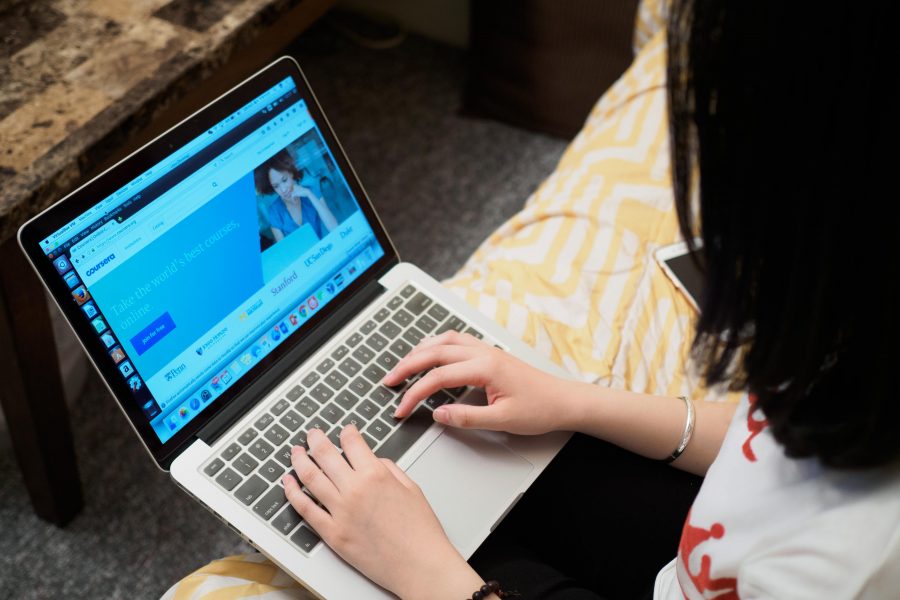Partnership with Coursera advances University’s investment in online education
A student opens Coursera on her laptop.
March 27, 2017
The University has partnered with Coursera, an online education platform, to provide worldwide access to higher education.
According to the Board of Trustees’ agenda meeting for March 15, the University is in its final stages of contract negotiations with Coursera. Currently, the University offers more than 70 courses through the platform, ranging from Marketing in a Digital World to 3D Printing Hardware.
These courses are taught by University instructors and are universally accessible. Students can access course materials free of charge, but must pay a fee in order to receive a final grade and a certificate of completion.
Coursera also offers Graduate level courses for credit towards the University’s online MBA program (iMBA).
“More and more people are going to (be able to) afford an education like an MBA because of its cost, but also because of the access,” said Hayden Noel, a business professor teaching marketing management on Coursera. “You’re really able to be anywhere in the world and enjoy the benefits of our University of Illinois education.”
Get The Daily Illini in your inbox!
In an increasingly online world, more people are opting to access higher education through the internet, although concerns exist regarding the credibility of certificates received through online education platforms.
“With the advent of for-profit institutions like the University of Phoenix, these schools were just churning out degrees,” said Noel. “Individuals graduate with certain degrees, and then some of these individuals might not have performed as employers had hoped.”
However, Noel contrasts courses from institutions like the University of Phoenix to the courses offered on Coursera.
“When you get reputable education institutions like the University of Illinois, it’s supported not only by very high-level e-learning departments but also by a high quality of teaching,” Noel said. “You have real top-of-the-line faculty providing almost the same type of environment and education you would get in a live classroom.”
Noel’s courses on Coursera involve live sessions meant to mirror a traditional classroom setting. Through the use of webcams, the students are able to engage with the professor in real time.
“The future of education lies in the methods by which students learn,” Noel said. “And now, more and more students are learning, acquiring information online.”
Many University courses already involve an online component, and students actively use additional online resources to help them learn. Laith Ibrahim, sophomore in Business, said he uses Chegg.com to help him study.
“I’d say online components help a lot, especially when I’m studying for an exam,” said Ibrahim. “That’s why I use Chegg a lot, because they provide explanations to help me understand it.”
Ibrahim still expresses reservations about taking courses solely online.
“Classes that are really intensive and detail-oriented, I don’t think I would take online,” said Ibrahim. “But gen-ed classes can be (accessed online more) easily because you don’t really benefit as much from having face-to-face contact.”
In contrast, Tyler Pohn, junior in LAS, favorably recalled his experience taking an online organic chemistry course.
“It was surprisingly smooth for an online course, given that it’s something tough like organic chemistry,” said Pohn. “I think with the later generations, they’re going to be more comfortable with this kind of stuff given that an upbringing with technology has become more and more commonplace.”







